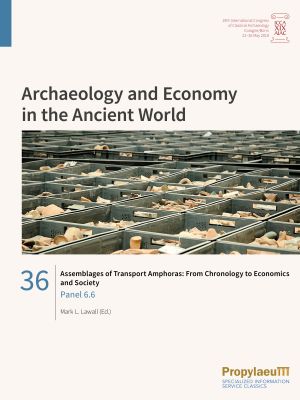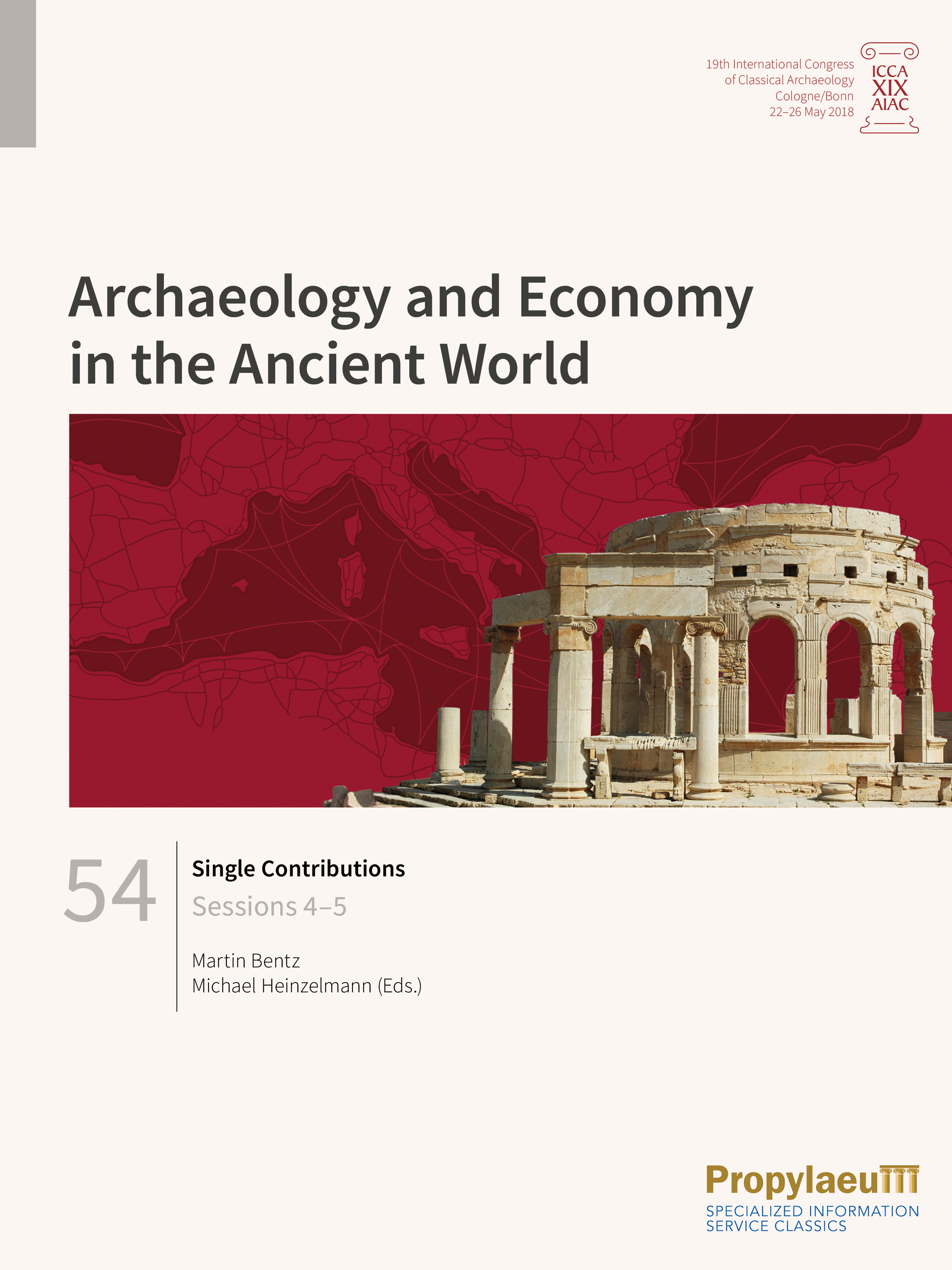Lawall, Mark L.
Assemblages of Transport Amphoras: From Chronology to Economics and Society: Panel 6.6
Wherever they end up in the archaeological record and however they were used from initial potting to final discard, transport amphoras are artifacts of economic activity. That connection to the ancient economy, however, does not limit the range of archaeological contexts where amphoras played a significant role.
The papers in this volume examine a wide range of settings – from individual buildings to shipwrecked cargoes to broad geographic regions – where these jars are found. While find spots are oft en analyzed for whatever chronological evidence they might provide, contexts – broadly defined – can also contribute to more complex social and economic interpretations of the jars and the areas where they appear. Hence, in this volume, amphoras are studied in terms of supplies to sanctuaries and other public functions, artifacts of private commercial business, localized demand for different kinds of products, broad commercial trends shaped by Mediterranean geopolitics and environmental change. The authors cover finds from Archaic Didyma, Classical Corinth, the late Classical shipwreck near Mazotos (Cyprus), Hellenistic Rhodes and Ephesos, and the sites of Voura and Aigio on the north coast of the Peloponnese. These studies highlight the many different ways that inherently economic artifacts inform our understanding of ancient society.
Sessions 4–5, Single Contributions
Economic aspects permeate all areas of public and private life in ancient societies, whether in urban development, religion, art, housing, or in death. Research on ancient economies has long played a significant role in ancient history. Increasingly in the last decades, awareness has grown in archaeology that the material culture of ancient societies offers excellent opportunities for studying the structure, performance, and dynamics of ancient economic systems and economic processes. Therefore, the main objective of this congress was to understand economy as a central element of classical societies and to analyse its interaction with ecological, political, social, religious, and cultural backgrounds. The theme of the congress was addressed to all disciplines that deal with Greco-Roman civilization and their neighbouring cultures from the Aegean Bronze Age to the end of Late Antiquity.
In this collective volume, single contributions of sessions 4 and 5 deal with questions on the exploitation of resources such as metals and marble in the Roman imperial period and also on distribution, trade and networks in general in antiquity. Thematically, the studies range from trade and cultural contacts in the Iron Age and Archaic Mediterranean, Greek and Roman coinage, to Roman trade and transport systems.








